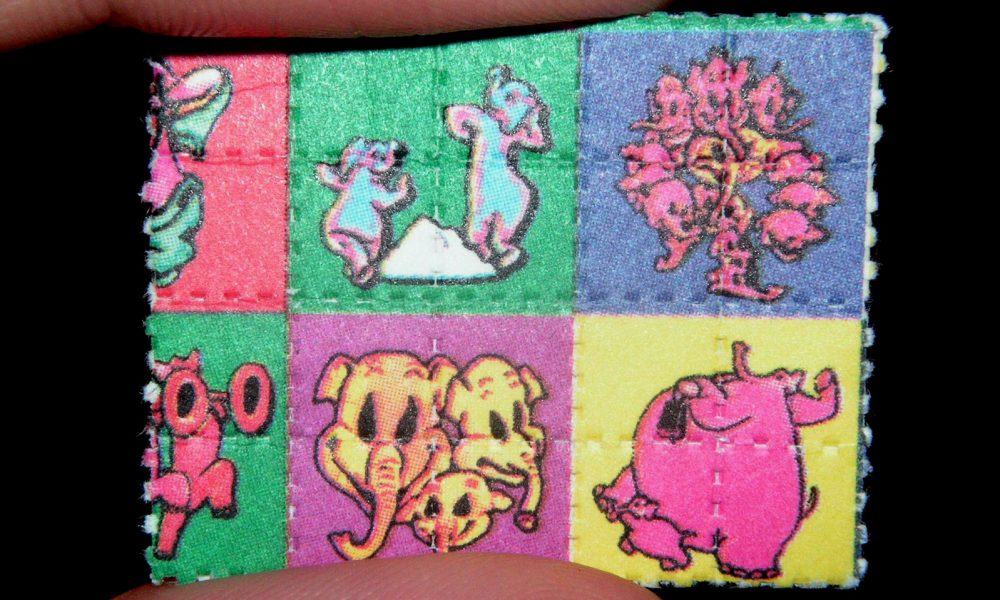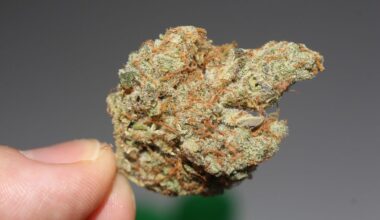The Drug Enforcement Administration (DEA) has withdrawn a controversial proposal to ban five psychedelic compounds—a decision that’s being celebrated by advocates and researchers.
Just weeks after posting a notice of a rare hearing that was scheduled in the face of broad pushback against the proposed prohibition, DEA said on Friday that it was no longer necessary because it is pulling back the idea to enact the ban, at least for now, and has instead decided to submit a request for an updated scientific review of the tryptamines from the U.S. Department of Health and Human Services (HHS).
DEA first proposed scheduling the compounds—4-OH-DiPT, 5-MeO-AMT, 5-MeO-MiPT, 5-MeO-DET and DiPT—in January. And it faced significant criticism, receiving nearly 600 messages during a public comment period, with most opposing the rule change and requesting a hearing.
The agency’s own administrative court subsequently agreed that there was a need to hold a hearing on the matter before the prohibition could be enacted.
But while it seemed that the stage was set for an August 22 hearing, DEA ultimately decided against it, which is at least a short-term victory for researchers who say the designating the tryptamines as Schedule I, as proposed, would seriously inhibit studies into their therapeutic potential.
5 psychedelic tryptamines, kept off schedule I?
DEA scheduling proceedings—terminated:
“DEA is withdrawing the proposed rule…canceling the public hearing & terminating the pending hearing proceedings”
Unprecedented outcome—a result of extraordinary lawyering by Matt Zorn
1/2 https://t.co/ZfBq8OJurB pic.twitter.com/OJHjhcDNil
— Graham Pechenik (@calyxlaw) July 22, 2022
It’s not clear how long it will take HHS to conduct a new scientific review of the substances. And it’s also not guaranteed that it will recommend keeping the compounds unscheduled or placing them in a less restrictive schedule. But the hearing cancellation means that, at the very least, scientists will have more time to do their own research into the psychedelics without the onerous barriers imposed by a Schedule I classification.
“The decision to get an updated evaluation will allow important research and development to continue that could lead to lifesaving medicines and a better understanding of this drug class,” Matt Zorn, an attorney representing a client with a research interest in the tryptamines, told Marijuana Moment. “I’m glad the Administrator and DEA took a hard look at the science and data before it.”
In its latest notice, DEA said simply that it had decided to submit a request for HHS review upon “further consideration” of the circumstances surrounding the scheduling proposal. The agency also stated that it “may issue a new proposed rule in the future regarding these substances if warranted.”
DEA’s Administrative Law Judge Teresa Wallbaum had issued an order in February that set the hearings into motion, detailing a timeline for prehearing statements from the agency and stakeholders, as well as setting a date for a prehearing conference in May.
The function of the Office of Administrative Law Judges is specifically to adjudicate in cases related to DEA enforcement and regulations. In this case, the opponents of the agency’s proposed ban were hoping that the judge would ultimately recommend either a lower schedule or no schedule at all for the five compounds.
With the agency’s latest move, they don’t need to rely on the judge’s opinion, at least for now.
In its initial rulemaking filing for the five tryptamines, DEA said that it took into account research and recommendations from the U.S. Department of Health and Human Services (HHS) which found that “these substances are being abused for their hallucinogenic properties,” as well as its own eight-factor analyses, before it made the scheduling proposal.
DEA said in the notice that agencies have identified cases of hospitalizations related to the use of two of the tryptamines. It was only able to cite one death where one of the compounds, 5-MeO-AMT, was found in the person’s system, in addition to alcohol and an antidepressant. DEA acknowledged that “it is unclear what role 5-MeO-AMT played in the death.”
Hearing request letters that were obtained by Marijuana Moment earlier this year contested the agency’s justification for the proposed ban on the basis that it was not only unnecessary given the limited evidence of abuse potential but would also interrupt the research and development of medicines that could help treat serious mental illnesses.
Separately, DEA is being sued—again—over its refusal to allow a doctor to treat terminally ill patients with psilocybin therapy pursuant to federal and state “Right to Try” (RTT) laws, which are aimed at expanding access to Schedule I investigational drugs that aren’t currently approved for general use.
The agency is also facing increased political pressure from bipartisan lawmakers, who are taking an extra step to provide additional congressional clarification, filing companion bills in the House and Senate last week to reaffirm that the scope of Right to Try policy should include psychedelics.
The bill filing comes about six months after bipartisan members of Congress sent a letter, led by Rep. Earl Blumenauer (D-OR), requesting that DEA allow terminally ill patients to use psilocybin as an investigational treatment without the fear of federal prosecution.
Meanwhile, in May, Sens. Cory Booker (D-NJ) and Brian Schatz (D-HI) separately pushed top federal officials to provide an update on research into the therapeutic potential of psychedelics, arguing that ongoing federal prohibition has stymied studies.
Federal health officials recently recognized that federal prohibition makes it harder to study the benefits of psychedelics, requiring researchers to jump through additional regulatory hoops.
Activists—including one of the plaintiffs in the RTT case, Erinn Baldeschwiler—staged a demonstration outside of DEA headquarters in Virginia in May, demanding that the agency allow terminally ill patients to access psilocybin therapy.
DEA is separately being sued over repeated delays in processing requests for public records related to psychedelics and marijuana.
The agency has separately increased production quotas for the production of certain psychedelics like psilocybin in an effort to promote research, but its scheduling decisions have continued to represent obstacles for scientists.
Read the DEA’s notice cancelling the proposed psychedelics ban and hearing below:
Medical Disclaimer:
The information provided in these blog posts is intended for general informational and educational purposes only. It is not a substitute for professional medical advice, diagnosis, or treatment. Always seek the advice of your physician or other qualified healthcare provider with any questions you may have regarding a medical condition. The use of any information provided in these blog posts is solely at your own risk. The authors and the website do not recommend or endorse any specific products, treatments, or procedures mentioned. Reliance on any information in these blog posts is solely at your own discretion.







